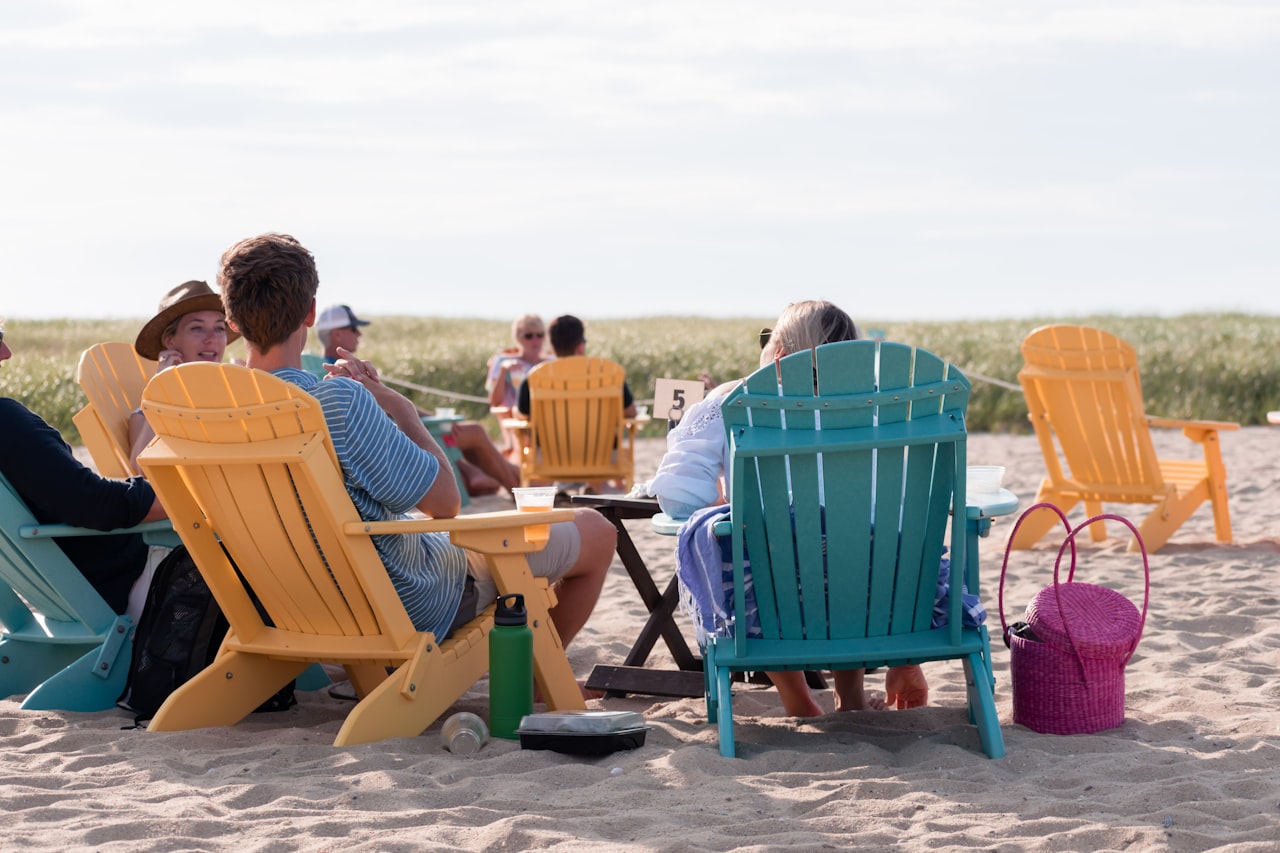In the years since remote and hybrid work reshaped the way Americans live, Cape Cod has quietly emerged as one of the East Coast’s most desirable work-from-anywhere destinations. What used to be a place you escaped to on weekends has become a primary–or at least part-time–homebase for a new generation of professionals, executives, entrepreneurs, and creatives who want both productivity and quality of life.
The shift is redefining the luxury and upper-tier markets across the Cape. More buyers are seeking homes that support year-round living, offer privacy and nature, and still provide access to amenities, connectivity, and community.
Here’s why Cape Cod is becoming the East Coast’s new hub for remote work.
A Lifestyle That Prioritizes Balance
For many high-achieving professionals, the pandemic highlighted something essential: where you live shapes how you live. Cape Cod checks every box for people seeking a slower, more intentional pace without sacrificing sophistication.
Remote-capable homeowners are choosing the Cape for:
-
Coastal walks before morning calls
-
Midday breaks on bike trails or beaches
-
Fresh air, sunlight, and nature-integrated living
-
A sense of community and belonging
-
Longer, more meaningful family time
It’s a lifestyle that blends ambition with groundedness.
High-Quality Infrastructure Makes Remote Work Seamless
Historically, the Cape’s biggest limitation for year-round residents was connectivity. But in the last five years, that’s changed dramatically.
Widespread high-speed fiber & broadband expansion
Most major towns—including Chatham, Orleans, Brewster, Harwich, Barnstable, Mashpee, and Falmouth—now offer strong, stable internet capable of supporting:
-
Video conferencing
-
Large data transfers
-
Creative and engineering workflows
-
Remote medical, consulting, and financial services
This shift has opened the Cape to industries that previously required urban proximity.
Homes Designed for Hybrid Workflows
In the luxury and upper-end market, buyers are now prioritizing:
1. Private home offices
Often two—not one. Dual offices are now standard in $1.5M+ purchases.
2. Separate spaces for calls
Quiet corners, lofts, and dens are increasingly valuable.
3. Detached structures
Guest houses, barns, above-garage suites, and renovated sheds are often repurposed into:
-
Creative studios
-
Writing or design spaces
-
Zoom rooms
-
Therapy or coaching offices
-
Founder “mini-retreats” for focused work
4. Multi-suite layouts
Accommodating in-laws, au pairs, grown children, visiting clients, or business partners is a growing priority.
This shift is driving demand for flexible, multi-purpose floorplans—particularly in Chatham, Orleans, Brewster, Harwich, and Osterville.
Easy Access to the Northeast’s Major Business Hubs
The Cape provides a unique advantage: distance without disconnection.
Remote and hybrid workers still enjoy quick access to:
-
Boston (1.5–2 hours)
-
Providence (1.5 hours)
-
NYC (direct flights from Hyannis or Boston connections)
-
Washington, D.C.
-
Europe, with direct BOS flights
For buyers who travel occasionally but not daily, the Cape offers the perfect middle ground: close enough for commitments, far enough for peace.
The Appeal of Cape Cod’s Towns for Remote Lifestyle
- Chatham - Walkability, cafes, boutique shops, beaches—ideal for those who want a village feel.
- Orleans - A hub for year-round residents with great dining, easy off-season life, and nearby beaches.
- Harwich & Harwich Port - Community-driven and walkable with strong full-time neighborhoods.
- Osterville - Luxury, elegance, and privacy with convenient access to Hyannis services and travel.
- Brewster - Nature-forward, peaceful, scenic—especially appealing for creatives and executives seeking solitude.
- Provincetown - A vibrant, artistic, and inclusive environment with surprisingly strong off-season energy.
Why Remote Workers Are Choosing Cape Cod Over Boston Suburbs or the Islands
1. A true escape (that still feels connected)
The Cape offers natural beauty and serenity without feeling isolated.
2. More inventory and more year-round neighborhoods
Compared to Martha’s Vineyard and Nantucket, which skew heavily seasonal.
3. Lower cost of ownership than the islands
For equivalent waterfront or near-water properties.
4. A broader range of architectural styles
From historic captains’ homes to new construction coastal builds.
5. Strong community fabric
Especially important for families or long-term relocations.
What This Means for the Luxury Market
The rise of remote work has created new demand for:
-
Year-round homes
-
Higher-quality builds
-
Flexible living spaces
-
Multi-suite layouts
-
Homes close to village centers
-
Properties with acreage or privacy
-
Amenities like gyms, saunas, and outdoor living zones
This trend shows no signs of slowing. If anything, it’s becoming a defining force in the Cape’s long-term real estate evolution.
The Bottom Line
Cape Cod is no longer a summer-only destination—it’s becoming the preferred home base for high-level professionals who want the best of both worlds: career and coastline, ambition and balance, work and life.
If you're exploring a move to the Cape (full-time or hybrid), the Guthrie Schofield Group is here to help you find a home that fits your life today and evolves with you tomorrow.
































































































